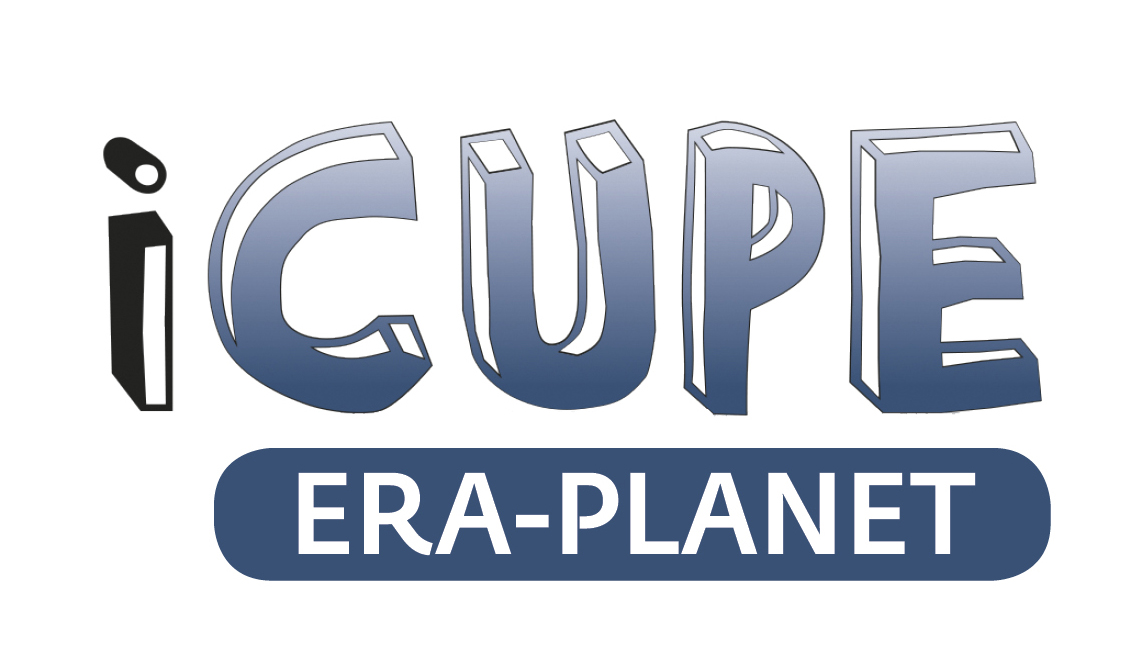
Abstract of the project
iCUPE is one of the four projects funded by the output of the Joint International Call organized within the ERA-PLANET program with the participation of all the Consortium partners.
ERA-PLANET is a program funded by Horizon 2020. Its general objective is to strengthen the area of European Research in the field of Earth Observation in line with European participation in the Group on Earth Observation (GEO) and Copernicus. The expected impact is to strengthen European leadership in the next GEO 2015-2025 work plan.
iCUPE responds to thematic section 4 (polar areas and natural resources) of ERA-PLANET (European network for the observation of our changing planet). The project is motivated by the fact that the role of the polar regions will increase in terms of megatrends such as globalization, new transport routes, demographics and the use of natural resources.
These megatrends have environmental effects and will drastically affect, for example, regional and transported pollutant concentrations. As a result, the polar areas face major interlinked challenges.

iCUPE combines integrated in situ and satellite Earth observation with a modeling platform. In this way 1) synthesizes data from long-term global measurements, intensive campaigns and satellites, collected during the project or provided by ongoing international initiatives 2) correlates observed parameters with impacts and 3) provides new data products , metrics and indicators to stakeholders regarding the environmental status, availability and extraction of natural resources in polar areas. These data, metrics and indicators will be targeted to the identified stakeholders. They will be useful for policy development and for improving and clearly communicating our multidisciplinary understanding of the state of the polar environment and the dynamics of pollution in the future. The knowledge generated is relevant to the general population, policy makers and scientists. They will be useful for policy development and for improving and clearly communicating our multidisciplinary understanding of the state of the polar environment and the dynamics of pollution in the future. The knowledge generated is relevant to the general population, policy makers and scientists. They will be useful for policy development and for improving and clearly communicating our multidisciplinary understanding of the state of the polar environment and the dynamics of pollution in the future. The knowledge generated is relevant to the general population, policy makers and scientists.
ICUPE's ambition is to make significant progress towards better integration between existing in situ observation networks for polar measurement data on short-lived air pollutants, including aerosols and trace gases, as well as contaminants. The focus is on the availability of long-term datasets and facilitating intensive campaigns, as well as piloting near real-time data. Quality control, data flows and data flows will be harmonized within iCUPE.
iCUPE is a 3 year project and the work and activities carried out within iCUPE are distributed to 7 work packages, 18 tasks, 56 deliverables and 30 milestones.
1) summarize data from long-term global measurements, intensive campaigns and satellites, collected during the project or provided by ongoing international initiatives
2) relate the observed parameters with the impacts,
3) provide stakeholders with new data, parameters and indicators relating to the environmental status, availability and extraction of natural resources in polar areas.
These data, measurements and indicators will be focused on the needs of the end users. They will be useful for policy development and for improving and clearly communicating multidisciplinary knowledge about the state of the polar environment and the evolving dynamics of pollution. The knowledge generated will be particularly relevant to the general public, policy makers and scientists. The resulting data and products, as well as data and products acquired in the future, will be collected in a well-documented long-term database, made available and ready for use by scientists, policy makers and the general public. With an integrated approach, the project will improve our understanding of pollution sources and sinks, environmental and anthropogenic changes and in particular changes in the cryosphere in polar areas; through high-level and high-impact research, the data will be integrated with environmental modeling procedures.
National Research Council (CNR), Italy
Aarhus University (AU), Denmark
Alfred Wegener Institute Helmholtz Center for Polar and Marine Research (AWI), Germany
Center National de la Recherche Scientifique (CNRS), France
Estonian University of Life Sciences (EULS), Estonia
Finnish Meteorological Insitute (FMI), Finland
Helmholtz Zentrum Potsdam GFZ Deutsches GeoForschungsZentrum (GFZ), Germany
Helmholtz-Zentrum Geesthacht (HZG), Germany
NCSR Demokritos, Institute of Nuclear Technology and Radiation Protection (NCSR), Greece
Paul Scherrer Institut (PSI), Switzerland
Leibniz Institute for Tropospheric Research (TROPOS), Germany
Stockholm Universitet (SU), Sweden
G. Fontinovo, G. Esposito (Institutional headquarters in Montelibretti (Rome) R. Salzano, P. Mazzetti, Mattia Santoro (Branch office in Sesto Fiorentino)